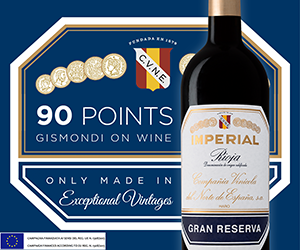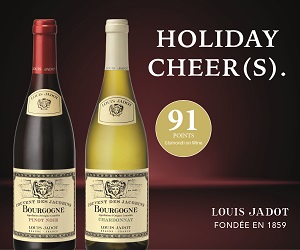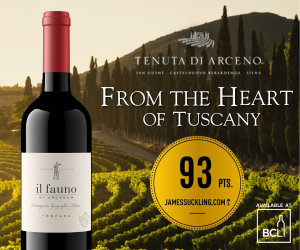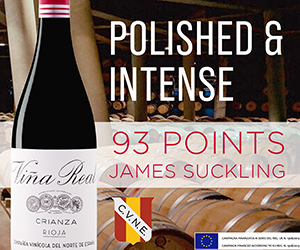Sustainability has been a hot-button issue for consumers in the food and wine business for more than a decade now, and as we prepare to welcome the wine world to the upcoming Vancouver International Wine Festival in late February it seems appropriate to look at what is going on in California, the theme region at the 2013 wine fest.
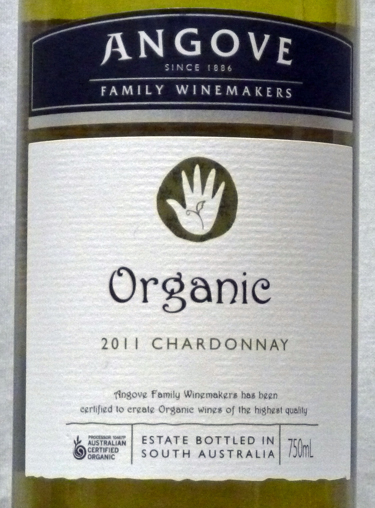
After a decade of work, the California Sustainable Winegrowing Alliance (CSWA) recently issued its 2012 Progress Report that highlights the release of its third edition California Code of Sustainable Winegrowing Workbook. Remarkably, since 2002, the CSWA's Code Workbook has been used by 1,800 vineyard and winery organizations to self-assess their operations. That represents an astounding 72 per cent of California's wine grape acreage (389,375 acres) and 74 per cent of its case production (189 million cases).
Throughout that same period CSWA has held 232 educational workshops attended by 10,737 participants and reports that the third revision of the Code Workbook, "involved 50 growers and vintners in 35 meetings over two years. As a result, vineyards and wineries of all sizes throughout the state will find the workbook's updated and revised best practices and resources even more relevant and effective."
CCSW is an acronym for Certified California Sustainable Winegrowing, and it provides verification that a winery or vineyard adopts and implements sustainable wine-growing practices according to the industry's code of best practices. Wineries and vineyards are asked to meet a broad range of criteria and including some 50-plus prerequisites governing their operations and its sustainability. From there they must undergo an accuracy test of their evaluations and practices during a third-party audit.
The workbook identifies key areas where wineries can improve the sustainability of their practices; wineries must then create and implement annual action plans and demonstrate improvements over time. The lofty but attainable goals are to "enhance transparency, encourage statewide participation and advance the entire California wine industry toward best practices in environmental stewardship, natural resources conservation and socially equitable business practices."
What impresses me most is the process-based certification which leads to wineries meeting the most important principles of the sustainable wine-growing program, not the least of which is developing continuous improvement. After meeting 58 pre-requisite criteria, participants are free to pursue areas that need to be improved, and concentrate resources on practices that will make a difference to their goals.
If you are thinking there is no legal term or official category for sustainable wine you are correct. CCSW-Certified does not attempt to create a definition for sustainable wine, nor does it allow the use of a CCSW-Certified logo or claim on the bottle . What the program does provide is a "third-party verification of a winery and/or vineyard's adherence to a process of continuous improvement in the adoption of sustainable practices."
A workbook with a code of sustainable wine growing and winemaking practices that is all encompassing is more powerful than any sticker on the bottle. There is so much claptrap about sustainability, organics and bio-dynamics at the retail/consumers level, and so little agreement on the final rules and regulations, that I'm happy with a code that focuses on not wasting water or energy.
Sustainability is more than any single rule or collection of regulations. It is a mindset that needs to be embraced and shaped to work in all aspects of our lives.
Isabel Mondavi IM Chardonnay 2010, Carneros, Napa Valley, California, United States
Price $46 on-site Vancouver International Wine Festival Store
UPC 0087739700070
Score 90/100
Remarks A charming, enticing honeysuckle, butter, citrus, green apple nose with earthy, honey, slightly nutty aromas. The style juicy, fresh and elegant; the palate round with citrus, baked apple, butter, vanilla, spiced pear, citrus and lees flavours with a nutty, floral finish. Good finesse and flavour balance. An elegant restrained California chardonnay.
Penfolds Koonunga Hill Chardonnay 2011, South Australia
Price $16
UPC 012354071339
Score 88/100
Remarks This is a classic example of the trickle-down effect at Penfolds where chardonnay has been on 15 year long journey. KH is fresh, light, bright and clean and while it can please with its green apple skin, pear, honey and butter aromas and flavours it is the light lees, brioche and complexity that is most welcomed here. Koonunga Hill is still sourced from multiple districts with significant contributions from South Australia GIs Clare and Padthaway. Some 46 per cent is matured in stainless steel the rest in new and seasoned oaked barrels. Impressive for the price.
Joseph Faiveley Bourgogne Chardonnay 2009, Burgundy, France
Price $30 Everything Wine
UPC 335100006912
Score 88/100
Remarks Bourgogne blanc is often underrated because in many years the majority of labels can be fairly bland. While not inexpensive this Faiveley edition hits all the right notes from its pale yellow colour to its fresh floral nose. The attack is fresh and clean with fine fruit intensity, some delicacy, and bright palate cleansing acidity in the finish. A portion of the wine sees some oak ageing for six to eight months. The perfect seafood luncheon white. Attention restaurants.
Angove's Organic Chardonnay 2011, South Australia
Price $19.00
UPC 650814000422
Score 87/100
Remarks Expect a fresh leesy, bread dough baked green apple nose flecked with grapefruit, nutty oatmeal aromas. The palate is round, oily and just off-dry with more nutty lees, butter, apple skin, grapefruit, oatmeal flavours with a warm, bitter butter finish. A fine, certified organic, luncheon wine for chicken salad.
Lindemans Bin 65 Chardonnay 2012, South Eastern Australia
Price $12.00
UPC 012354081840
Score 87/100
Remarks You can't really expect more than you get here for $12. The style is fresh and perfectly leaned out for food with light aromatic peach and citrus notes. There's a touch of butter to smooth out the fresh peach and light lemon and lees flavours that coat the palate. A touch watery (juicy) in a good way in the finish. Simple, well-made, fresh atypical cheap chardonnay that' sis perfect with chicken or seafood. Good value. Has Yattarna reshaped every chardonnay at Treasury?
Finca Los Primos Chardonnay 2011, San Rafael, General Alvear, Mendoza, Argentina
Price $10.00
UPC 07790703007606
Score 86/100
Remarks Another ridiculous chardonnay value. The nose is a mix of citrus, peach skin, light lees and butter aromas. The attack is fresh and juicy with off-dry flavours of grapefruit, green apple, earthy, honey and nectarine with a buttery but fresh finish. Good value here for in a versatile everyday white.
Read more: http://www.vancouversun.com/life/Sustainability+mindset/7910181/story.html#ixzz2NMEnEalF

 quicksearch
quicksearch


